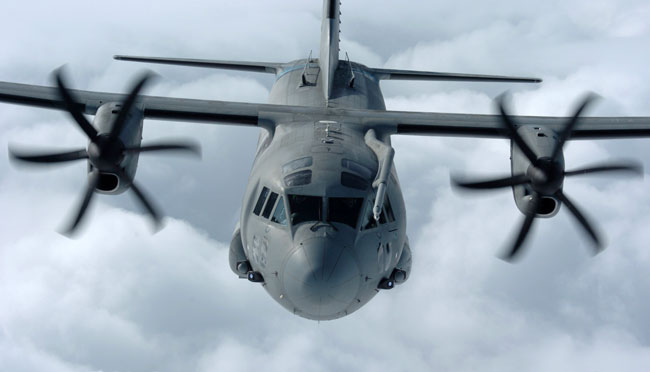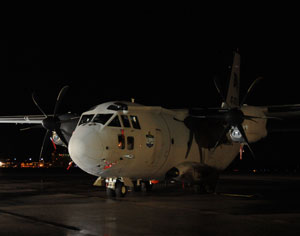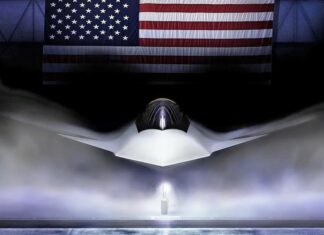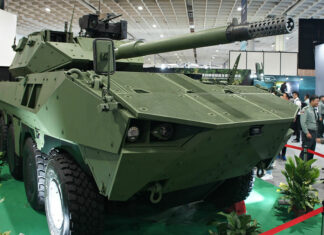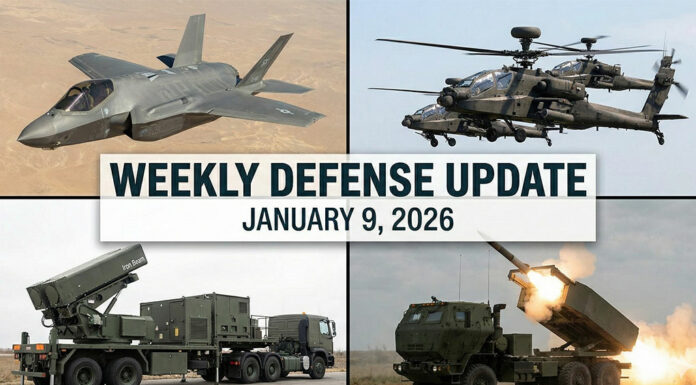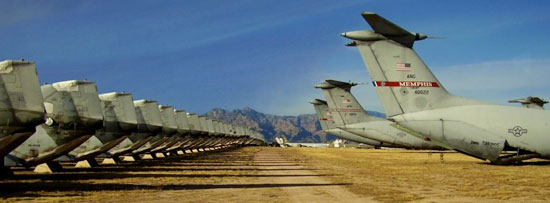
New cargo planes on order for the U.S. Air Force are being delivered straight into storage in the Arizona desert because the military has no use for them, a Dayton Daily News investigation found. A dozen nearly new C-27J Spartans have already been taken out of the US Air National Guard service and shipped to the so-called ‘boneyard’ at Davis-Monthan Air Force Base in Tucson. Five more are expected to be built by April 2014, all of which are headed to the boneyard unless another use for them is found.
The Air Force has spent $567 million on 21 C-27J aircraft since 2007, according to purchasing officials at Wright-Patterson Air Force Base. Sixteen had been delivered by the end of September. The Air Force almost had to buy more of the planes against its will, the newspaper found. A solicitation issued from Wright-Patterson in May sought vendors to build more C-27Js, citing Congressional language requiring the military to spend money budgeted for the planes, despite Pentagon protests.
Congress put the brakes on the expenditure, which was the right thing to do according to government watchers such as Mike O’Hanlon of the Brookings Institute. He said the planned additional purchase would have been “simply wasting precious taxpayer money.”
The military initially wanted the C-27J because it had unique capabilities, such as the ability to take off and land on less developed runways, according to Ethan Rosenkranz, national security analyst at the Project on Government Oversight. But when sequestration hit, the military realized the planes weren’t a necessity, but instead a luxury it couldn’t afford, he said.
Former Air Force Chief of Staff Gen. Norton Schwartz testified before Congress last year that the military wanted to divest its C-27J fleet to come in line with budget cuts. He said the C-130 can do everything currently asked for and costs $213 million to fly over its 25-year lifespan. The C-27J, on the other hand, would cost $308 million per aircraft.
Nevertheless, the C-27Js are still being produced. When asked why the Air Force can’t simply put the brakes on having the other five planes delivered, Air Force spokesman Darryl Mayer responded, “They are too near completion for a termination to be cost effective and other government agencies have requested the aircraft.”
Military officials are working to find another user for the planes. In the meantime they will be kept ‘operational’ at the ‘boneyard’ by the 309th Aerospace Maintenance and Regeneration Group, overseen by Materiel Command at Wright-Patterson. It was established near Tucson after World War II because the region’s low rainfall, humidity and soil minimize deterioration and corrosion. Also, the soil is so hard that no tarmac is needed. The sprawling desert complex currently stores more than 4,400 unused aircraft and 13 aerospace vehicles from all branches of the military and NASA, with a total value of more than $35 billion. “This aerospace fleet provides a unique savings account from which military units throughout the world may withdraw parts and aircraft,” according to the base’s website. “The government earns additional income by selling aircraft to our allies.” “It is anything but just a boneyard or a storage facility,” said Ron Fry, Materiel Command spokesman. “They have a very robust mission to turn aircraft and equipment back into service.”
The C-27J is manufactured by Alenia North America — a part of the Italian firm Finmeccanica Inc. — and prime contractor L-3 Communications.
Finmeccanica and L-3 Communications both have multi-million dollar lobbying efforts and the two companies and their PACs spent more than $1 million on campaign contributions during last year’s election cycle, according to the nonprofit Center for Responsive Politics.
